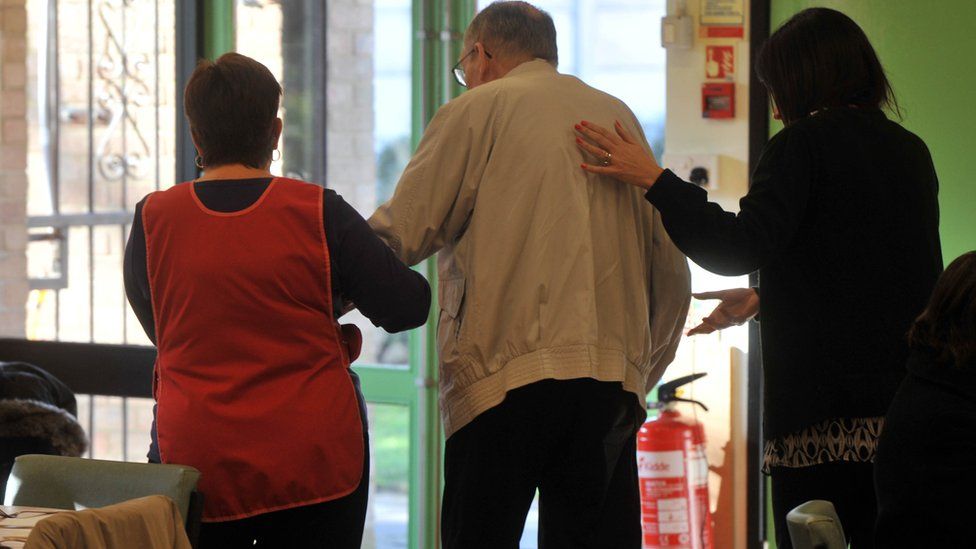ARTICLE AD BOX

By Alison Holt
Social affairs editor
It's less than two years since skilled worker visas were opened up to overseas care workers to tackle record staff shortages in the UK.
In the minds of many working in social care, staff recruited from abroad "saved" the system from collapse.
That's important context when you look at the reaction to today's announcement that care workers will no longer be able to bring their families.
Care companies fear the ban on dependents will put potential recruits off moving to the UK.
Home Office figures suggest that nearly 144,000 care workers, who arrived in the UK in the year up to September 2023, brought almost 174,000 family members with them.
In a sector where pay is low, finding a better life for their families can be a major motivation for overseas staff to sign up to work in care homes or home care.
Mike Padgham runs five care homes in North Yorkshire. Out of his 225 staff, 32 have been recruited from abroad.
He said he was worried that staff already here, who are waiting to bring family over, may leave and other potential recruits may not accept jobs after Home Secretary James Cleverly's announcement.
"I think we are going to find more businesses failing and care homes closing," he added.
When care work was made a shortage occupation in February 2022, there were 165,000 vacancies in this vital sector in England.
The number of empty posts has fallen to about 150,000. Still very high, but care providers say overseas recruitment has helped some of them survive.
Caroline Abraham, from the Care and Support Alliance, which represents more than 60 charities supporting older and disabled people, said she was worried that people needing care would "pay a heavy price" for the changes to the migration system.
"It is an open secret that inward migration effectively 'saved' the social care workforce last year," she said, adding: "Anything that undermines that source of support must be a real concern."
Low pay and cost-of-living pressures have put many already living in the UK off working in care.
Care providers will often comment that when a supermarket opens nearby it is even more difficult to recruit and keep staff because they will get paid more stacking shelves or working on checkouts.
Councils pay for most social care and they are under huge financial pressures, with one in 10 local authorities in England warning they could face effective bankruptcy.
Nadra Ahmed, of the National Care Association, which represents residential and nursing homes in England, said international recruitment was "a last resort for providers when they cannot recruit from the domestic workforce".
She argued that there needs to be" investment in social care to enable providers to recognise the skills of our teams".
The government has put additional money into adult social care but its plans for reforming how the care system is funded have been pushed back to beyond the next election.
On Monday, the government also announced all care firms will have to register with the Care Quality Commission (CQC) regulator to get the sponsorship licences which allow them to recruit abroad.
The majority of firms with licences are already CQC registered, with only home helps, day centres and some live-in carers falling outside this existing requirement.
This includes claims that some care workers are paying employers or agents thousands of pounds for their visas.
It is also alleged they are expected to work long hours for little pay or arrive to find there is no work waiting for them.

 1 year ago
53
1 year ago
53








 English (US) ·
English (US) ·